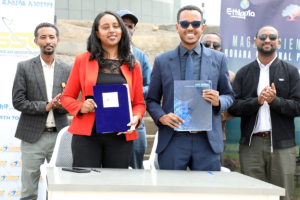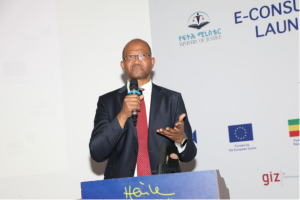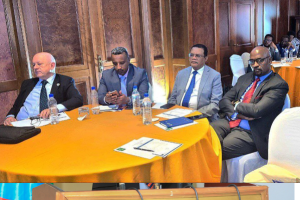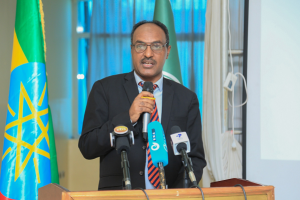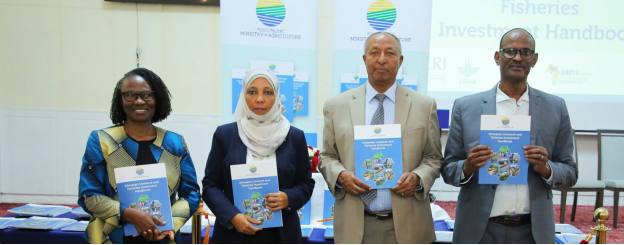
ADDIS ABABA– The Ministry of Agriculture (MoA), in partnership with the International Livestock Research Institute (ILRI), launched the country’s first-ever Livestock and Fisheries Investment Handbook on May 12, 2025.
The newly unveiled handbook aims to provide a comprehensive roadmap for investors, policymakers, and development partners, offering a clear pathway to harness Ethiopia’s vast livestock and aquatic resources. The launch was hailed as a pivotal step in transforming the sector into a competitive, inclusive, and market-oriented engine of growth.
MoA’s Agricultural Investment and Input Sector State Minister Sofia Kassa, highlighted that the handbook represents a crucial milestone in Ethiopia’s broader agricultural transformation journey.
She noted that with rising global demand for animal-source foods, there is significant potential for Ethiopia to expand its livestock and fisheries industries, both domestically and in international markets.
However, she pointed out that despite its abundance of resources, the sector continues to face challenges such as low productivity, inadequate infrastructure, limited access to finance, and fragmented value chains.
“While Ethiopia holds immense potential as one of Africa’s leaders in livestock and fisheries, these challenges need to be addressed to fully capitalize on its resources,” said Sofia . The government is actively addressing these issues through the 10-Year Perspective Plan and flagship initiatives like YelematTirufat, she added.
The handbook is more than just a report; it serves as a practical investment guide, detailing actionable business opportunities across Ethiopia’s livestock and fisheries value chains. It aims to provide clear, actionable insights for private investors and stakeholders looking to engage in the sector, while also outlining the preconditions and enabling environment for successful investments.
CGIAR Ethiopia Country Convenor and ILRI’s General Director’s Representative to Ethiopia, Namukolo Covic (PhD) emphasized that the handbook would reveal viable investment options, showcase innovative approaches, and define quality standards for potential investors. It also highlights international frameworks that can support sector investments.
“We see this handbook as a powerful tool to unlock the potential of Ethiopia’s livestock and fisheries sector, driving economic growth, food security, and job creation,” said Namukolo.
The State Minister of Livestock and Fisheries Resources Development Senior Advisor Alemayehu Mekonnen(PhD) underscored that the handbook is a collective effort reflecting the collaboration between the MoA, development partners, and technical experts. It is designed as both a strategic tool and a beacon for smart, sustainable investments.
“The success of this initiative hinges on strong cooperation from stakeholders, including private investors, policymakers, and development partners,” Mekonnen noted, calling on all parties to align their efforts toward creating long-term, inclusive economic benefits.
The handbook targets a broad spectrum of stakeholders, from private investors to regional and federal agencies, and international development bodies. By laying out a clear investment framework, it provides the tools necessary for building a resilient and thriving livestock and fisheries sector, with a focus on sustainable practices and economic inclusivity.
As Ethiopia looks to position itself as a leader in livestock and fisheries, the new handbook is expected to play a key role in shaping the future of the sector, promoting long-term growth and improving livelihoods across the country.
BY TEWODROS KASSA
THE ETHIOPIAN HERALD THURSDAY 15 MAY 2025


